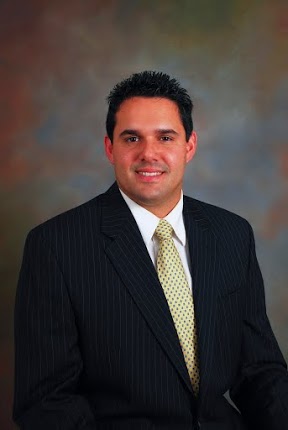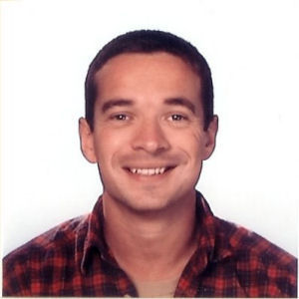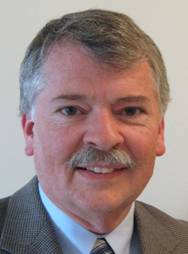
Profile
Dr. Borja Martos
 Dr. Borja Martos is currently a Research Engineer and Test Pilot at Embry-Riddle Aeronautical University (ERAU) Eagle Flight Research Center located at Daytona Beach, FL. Until October 2014 he was a research Professor and Head of Research Flight Operations in Aviation Systems and Flight Research at the University of Tennessee Space Institute (UTSI). He holds a B.S. and a M.S. in Aerospace Engineering from ERAU, and a Ph.D. from UTSI. He has over fifteen years of experience as a flight test engineer and over ten years of experience in directing and teaching academic courses and short courses in aircraft performance, flying, and handling qualities. As a flight test/instrumentation engineer for Eagle Works, he was responsible for developing data acquisition system and analysis methods for several flight test programs. This included single engine and multi-engine fixed-wing and rotary wing aircraft. At UTSI he lead performance, flying qualities, and handling qualities research as a flight test engineer and as a research pilot. He is an expert in fly-by-wire in-flight simulator aircraft, advanced flight control, and active/passive feel systems. Dr. Martos has an FAA airline transport pilot rating with instrument and multi-engine instructor ratings in fixed wing and rotary wing aircraft. He has over 2500 hours of pilot time and over 500 hours in research aircraft as a flight test engineer.
Dr. Borja Martos is currently a Research Engineer and Test Pilot at Embry-Riddle Aeronautical University (ERAU) Eagle Flight Research Center located at Daytona Beach, FL. Until October 2014 he was a research Professor and Head of Research Flight Operations in Aviation Systems and Flight Research at the University of Tennessee Space Institute (UTSI). He holds a B.S. and a M.S. in Aerospace Engineering from ERAU, and a Ph.D. from UTSI. He has over fifteen years of experience as a flight test engineer and over ten years of experience in directing and teaching academic courses and short courses in aircraft performance, flying, and handling qualities. As a flight test/instrumentation engineer for Eagle Works, he was responsible for developing data acquisition system and analysis methods for several flight test programs. This included single engine and multi-engine fixed-wing and rotary wing aircraft. At UTSI he lead performance, flying qualities, and handling qualities research as a flight test engineer and as a research pilot. He is an expert in fly-by-wire in-flight simulator aircraft, advanced flight control, and active/passive feel systems. Dr. Martos has an FAA airline transport pilot rating with instrument and multi-engine instructor ratings in fixed wing and rotary wing aircraft. He has over 2500 hours of pilot time and over 500 hours in research aircraft as a flight test engineer.
Richard Thomas
 Richard Thomas, is Co-Owner and founder of Flight Level Engineering. Mr. Thomas holds a B.S. in Aerospace Engineering as well as an MBA from Embry-Riddle Aeronautical University. He has experience as a stability and control engineer supporting store certification efforts at Eglin Air Force Base. In support of this mission Mr. Thomas has experience running advanced CFD on government DoD HPC supercomputers and has participates in flight test missions to evaluate aircraft handling qualities. He is experienced in design engineering as well as production engineering with Bell Helicopter’s new 525 Relentless. He is also an FAA certified flight instructor.
Richard Thomas, is Co-Owner and founder of Flight Level Engineering. Mr. Thomas holds a B.S. in Aerospace Engineering as well as an MBA from Embry-Riddle Aeronautical University. He has experience as a stability and control engineer supporting store certification efforts at Eglin Air Force Base. In support of this mission Mr. Thomas has experience running advanced CFD on government DoD HPC supercomputers and has participates in flight test missions to evaluate aircraft handling qualities. He is experienced in design engineering as well as production engineering with Bell Helicopter’s new 525 Relentless. He is also an FAA certified flight instructor.
Mr. Thomas serves as the Program Manager (PM) with FLE and is responsible for ensuring that the stated goals and expected outcomes of FLE customers are met. He is directly involved as a test pilot and engineer.
Richard Ranaudo
Richard J. Ranaudo is a private aerospace consultant who provides technical advice, test pilot, and flight training services to Flight Level Engineering, Freeport Florida. He has extensive operational and flight test experience in military, government, and civil aviation. Throughout his career has flown over 35 different aircraft types logging more than 12,000 hours primarily as Pilot-in-Command. He began his aviation career as an active duty USAF F-4 fighter pilot in Vietnam, and later served as a T-38 advanced jet instructor pilot. Following active duty, Mr. Ranaudo became a NASA research pilot, and in that capacity he performed a variety of aero-propulsion, aircraft performance, flying qualities, aircraft icing, and microgravity flight research programs. During that time he also served concurrently with the Ohio and Texas Air National Guard, flying the F-100, F 101, and A-7D aircraft as an operational fighter pilot. Mr. Ranaudo has an FAA Airline Transport Pilot (ATP) license and several type ratings in large jet, turbo-propeller, and reciprocating engine transport aircraft. He was the project pilot for NASA’s Tailplane Icing Program, and flew all high risk research flights with various tail plane ice shapes to investigate the hazardous aerodynamic conditions causing loss of control. Mr. Ranaudo also planned and conducted integrated controls simulations for highly advanced aircraft designs. In 1994, he was appointed the head of the Aircraft Operations Branch at the NASA Lewis Research Center (now the Glenn Research Center). After 25 years, Mr. Ranaudo retired from NASA and was subsequently hired by the Bombardier Flight Test Center, Wichita, Kansas as Manager and Senior Experimental Test pilot for Canadair Flight Test Programs. In that capacity he led a large group of test pilots and flight test engineers through three development and certification programs that included the intercontinental Global Express, and two Canadair Regional Jet variants. He also managed and conducted flight testing with sustaining aircraft to support Bombardier’s continuing airworthiness programs. Aside from his management and flight test duties, Mr. Ranaudo was frequently involved in safety risk management and problem solving activities associated with hazardous flight testing operations.
After leaving Bombardier in 2002, Mr. Ranaudo joined the faculty at the University of Tennessee Space Institute as an Assistant Research Professor in the Aviation Systems Program. He developed and taught graduate courses in Human Factors Engineering, Systems Flight Testing, and Airport Systems. Mr. Ranaudo also flew University aircraft in support of flight test short courses and flight research programs. He developed and was course director for short courses in aircraft icing and human factors, and was the Principal Investigator for a three year research grant sponsored by NASA’s Aviation Safety Program. This program culminated in the successful development of a real time state assessment system that mitigates the effects of hazardous icing on aircraft flying characteristics, upset conditions, and loss of control. Following his retirement from full time teaching duties in 2010, Mr. Ranaudo provided consultant services to UTSI for sponsored NASA research programs, and helped re-introduce the University’s variable stability aircraft into the icing short course.
Mr. Ranaudo has a B.S. Degree in Civil Engineering from the University of Connecticut, and a M.S. Degree in Aeronautical and Astronautical Engineering from the Ohio State University. He has authored 20 technical publications, 10 of which as first author primarily addressing aircraft performance and handling issues due to aircraft icing.
Ruben DeValois
 Mr. DeValois has worked with a number of aerospace companies in the field of automatic flight control analysis and design (Fokker Control Systems, Eurocopter) and in the field of handling qualities (Bihrle Applied Research, Aviation Technology Group). Since then he has amassed 10 years experience operating as an independent contractor.
Mr. DeValois has worked with a number of aerospace companies in the field of automatic flight control analysis and design (Fokker Control Systems, Eurocopter) and in the field of handling qualities (Bihrle Applied Research, Aviation Technology Group). Since then he has amassed 10 years experience operating as an independent contractor.
One of the recurring activities, is the modeling of flight control systems for the use in control loading systems in civil and military training- and engineering flight simulators. In this role he has analyzed and modeled the flight control systems of over more 30 different types of aircraft into high level of detail.
In the field of control loading systems he has also designed, implemented and tested the core control software of both hydraulic- and electric pc based control loading architectures and pc based refurbishment of hydraulic motion systems.
- BS in Aeronautical Engineering, Delft University (Netherlands)
- MS in Aeronautical Engineering, Delft University (Netherlands)
David Mitchell
 In his professional career of more than thirty-five years, Mr. Mitchell has been a contributor to the development of flying and handling qualities requirements for every type of air vehicle. He is a co-author of the report that became the Air Force’s Military Standard for Flying Qualities of Piloted Aircraft (MIL- STD1797A), of the Army’s Military Standard for Rotorcraft Flying Qualities (ADS-33), and of a proposed revision for the V/STOL Flying Qualities specification (MIL-F-83300). He recently led research programs for the US Navy to update the rotorcraft specification to suit maritime, cargo, and unmanned aircraft operations.
In his professional career of more than thirty-five years, Mr. Mitchell has been a contributor to the development of flying and handling qualities requirements for every type of air vehicle. He is a co-author of the report that became the Air Force’s Military Standard for Flying Qualities of Piloted Aircraft (MIL- STD1797A), of the Army’s Military Standard for Rotorcraft Flying Qualities (ADS-33), and of a proposed revision for the V/STOL Flying Qualities specification (MIL-F-83300). He recently led research programs for the US Navy to update the rotorcraft specification to suit maritime, cargo, and unmanned aircraft operations.
Mr. Mitchell is a part-time instructor in the Flying Qualities Phase at the USAF Test Pilot School. The FQ Phase consists of over 100 hours of lecture time, plus multiple simulation and flight demos and instruction. Mr. Mitchell is assisting with an effort to revamp all areas of the Phase to suit modern flight control design and test, including Unmanned Aerial Vehicles (UAVs). He is also a lecturer in Flight Test Engineering for the International Test Pilots School in London, Ontario, Canada, teaching advanced flight control systems and PIO.
Since 1999, Mr. Mitchell has been actively supporting the US Naval Air Systems Command in reviewing the flying qualities of the Marine Corps MV-22 Osprey tilt-rotor aircraft. He is also providing support for the Navy on the CH-53K Heavy Lift Replacement program. In 2002 he presented a four-day short course on “Highly Augmented Airplane Flying Qualities” at the Naval Air Station Patuxent River, Maryland. Mr. Mitchell has worked on development of pilot-induced oscillation (PIO) criteria and handling qualities demonstration maneuvers for the Air Force and NASA. He has also contributed to the development of flight director laws for a head-up display for a private company, and criteria for rotorcraft handling qualities under Army sponsorship. The rotorcraft work led to the release of the rotorcraft flying qualities specification, ADS33E-PRF, and a test guide. Through a series of contracts from Boeing Phantom Works, he has made technical contributions to the definition of handling qualities requirements for advanced transport, including the High Speed Research aircraft. He has been a contributor to numerous technical management programs conducted by the US Air Force Test Pilot School, including HAVE CAP, HAVE LIMITS, HAVE GAS II, HAVE RECKON, HAVE OLOP, HAVE ROVER, HAVE THRASH, and Project Icarus. Mr. Mitchell is the author or co-author of more than 75 technical papers and articles and over 50 technical reports on vehicle dynamics and handling qualities. He is also co-author of articles for two textbooks. In November 2014, he was an invited speaker at the 1st International Civil Aircraft Flight Test Symposium in Zhuhai, China, hosted by the Commercial Aircraft Corporation of China (COMAC).

